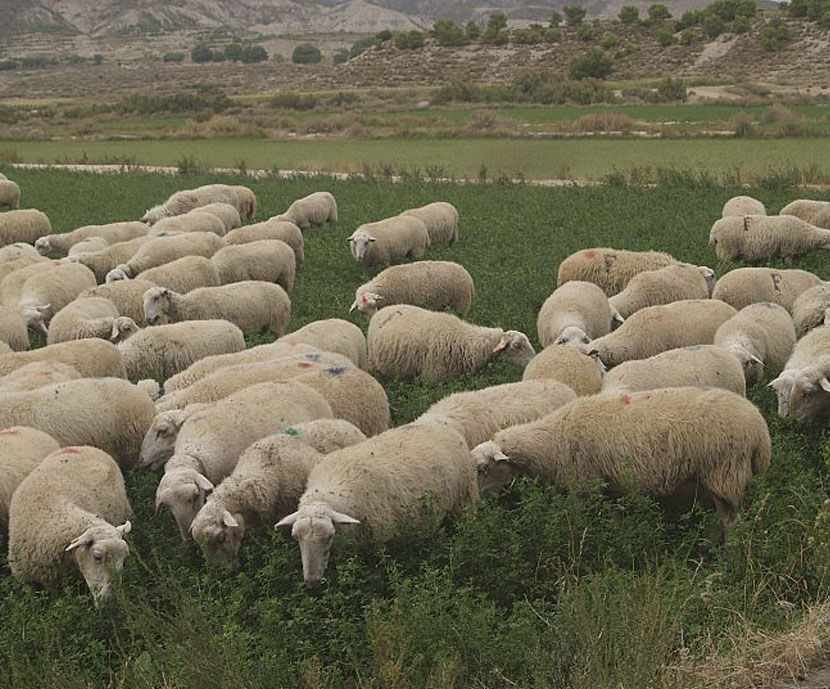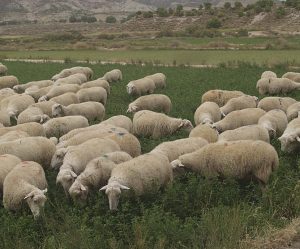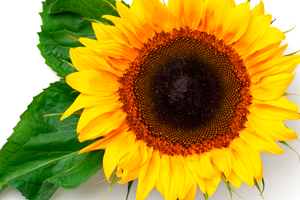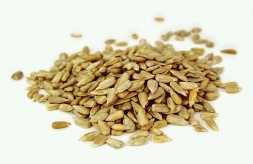 23 May 2022
23 May 2022
(MAH) Treated Sunflower dietary supplementation in growing lambs has shown to be a potential solution to prevent protein degradability in the rumen while also improving productive yields.
One of the main objectives of animal nutrition is to optimize animal yields withe purpose of obtaining good quality products that meet consumer demands while minimizing environmental pollution associated to livestock production which has become a priority in recent times. Ruminants have a low nitrogen (N) utilization efficiency when compared to other production animals. This is mainly due to the inefficient use of nitrogen (N) within the rumen, resulting in high levels of nitrogen excretion which causes environmental problems such as water and soil eutrophication. This problem is aggravated when feed with high-degradable proteins are used.

Sunflower is one of the most important oilseed crops worldwide and can be used for ruminant feeding in different forms. These include: whole seed (SS) or as sunflower meal (SM) which is the by-product derived from oil extraction. Sunflower protein is rich in sulfur-containing amino acids and tryptophan while low in lysine levels. As a result, its amino acid profile helps balance legume protein sources, yet It has the disadvantage of presenting an 80% rumen degradability. Therefore in an attempt, to find posible solutions that can prevent protein degradation within the rumen, different treatments have been assessed. Amongst which, a combined malic acid and heat treatment (MAH) has proven to be successful in reducing sunflower protein degradation.

Previous studies measured in situ degradability of MAH-treated SS and SM. It was observed that MAH treatment of both types of feedstuffs increased rumen-undegradable protein by 19.1% and 120% for SS and SM, respectively. Lambs fed with different sources of sunflower fat with a varying degree of susceptibility to ruminal biohydrogenation modified the fatty acid (FA) profile of the Longissimus dorsi in a form-dependent manner (Mejewska et al, 2016.) It was hypothesized that feeding MAH-treated SS and SM to lambs may change the meat (FA) profile towards a less saturated profile by increasing duodenal flow of unsaturated sunflower FA. Considering that both carcass characteristics and meat quality in ruminants are strongly affected by diet, the objective of the following study was to evaluate the influence of feeding MAH-treated sunflower seeds (SS) and meal (SM) on carcass characteristics, meat composition and fatty acid profile of growing lambs The protection of SM and SS was achieved by treating both feeds with malic acid at 150 °C for 2 h (MAH treatment). A previous study revealed that the use of this treatment was able to decrease ruminal degradability of protein in both types of feed as well as reducing (SS) fat degradability.
The Study
Two homogeneous groups of 12 lambs each were fed high-cereal concentrates and cereal straw ad libitum. Starting from 14 to 26 kg of body weight. The two concentrates differed only in the applied treatment on (SM) and (SS). These were included in the diet in either as untreated (control) or MAH treated.

Results
Conclusions
Subscribe now to the technical magazine of animal nutrition
AUTHORS

Nutritional Interventions to Improve Fertility in Male Broiler Breeders
Edgar O. Oviedo Rondón
The Use of Organic Acids in Poultry: A Natural Path to Health and Productivity
M. Naeem
Synergistic Benefits of Prebiotics and Probiotics in Poultry, Swine, and Cattle
Gustavo Adolfo Quintana-Ospina
Hybrid Rye Potential in Laying Hen Feed Rations
Gwendolyn Jones
A day in the life of phosphorus in pigs: Part I
Rafael Duran Giménez-Rico
Use of enzymes in diets for ruminants
Braulio de la Calle Campos
Minerals and Hoof Health in the Pregnant Sow
Juan Gabriel Espino
Impact of Oxidized Fats on Swine Reproduction and Offspring
Maria Alejandra Perez Alvarado